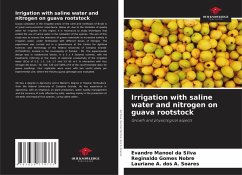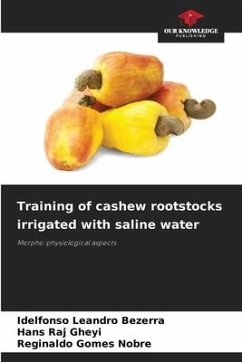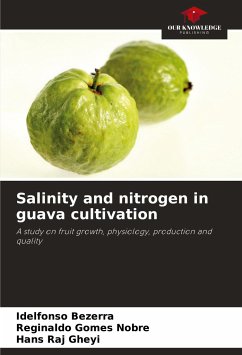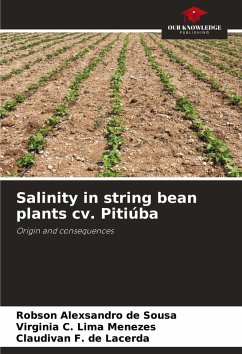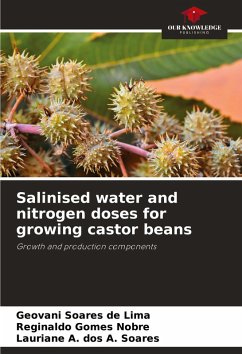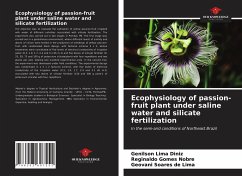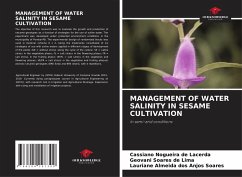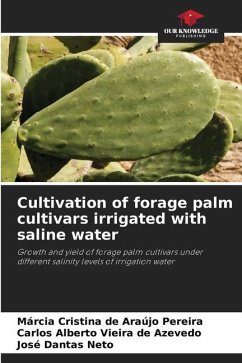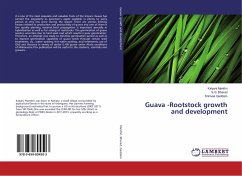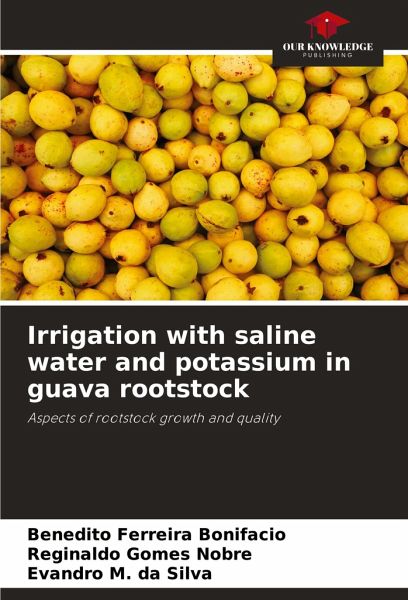
Irrigation with saline water and potassium in guava rootstock
Aspects of rootstock growth and quality
Versandkostenfrei!
Versandfertig in 6-10 Tagen
24,99 €
inkl. MwSt.

PAYBACK Punkte
12 °P sammeln!
The guava tree is of socio-economic and food importance to the northeastern region of Brazil, where there is limited availability of good quality water. With this in mind, the research was carried out with the aim of evaluating the effects of different levels of irrigation water salinity associated with potassium fertilization on the production of guava rootstock seedlings. The experiment was carried out in a greenhouse at the Center for Agrifood Sciences and Technology at the Federal University of Campina Grande, Pombal - PB. The experimental design was in randomized blocks, in a 5 x 4 factor...
The guava tree is of socio-economic and food importance to the northeastern region of Brazil, where there is limited availability of good quality water. With this in mind, the research was carried out with the aim of evaluating the effects of different levels of irrigation water salinity associated with potassium fertilization on the production of guava rootstock seedlings. The experiment was carried out in a greenhouse at the Center for Agrifood Sciences and Technology at the Federal University of Campina Grande, Pombal - PB. The experimental design was in randomized blocks, in a 5 x 4 factorial scheme, with the treatments referring to five levels of electrical conductivity of the irrigation water (ECa = 0.3; 1.1; 1.9; 2.7 and 3.5 dS m-¹) in interaction with four doses of potassium (70, 100, 130 and 160% K) with the recommended dose of 100% K (726 mg of K dm-³ of substrate) for guava seedlings and four replications, each plot consisting of two useful plants, whose genotype was the Paluma cultivar.





